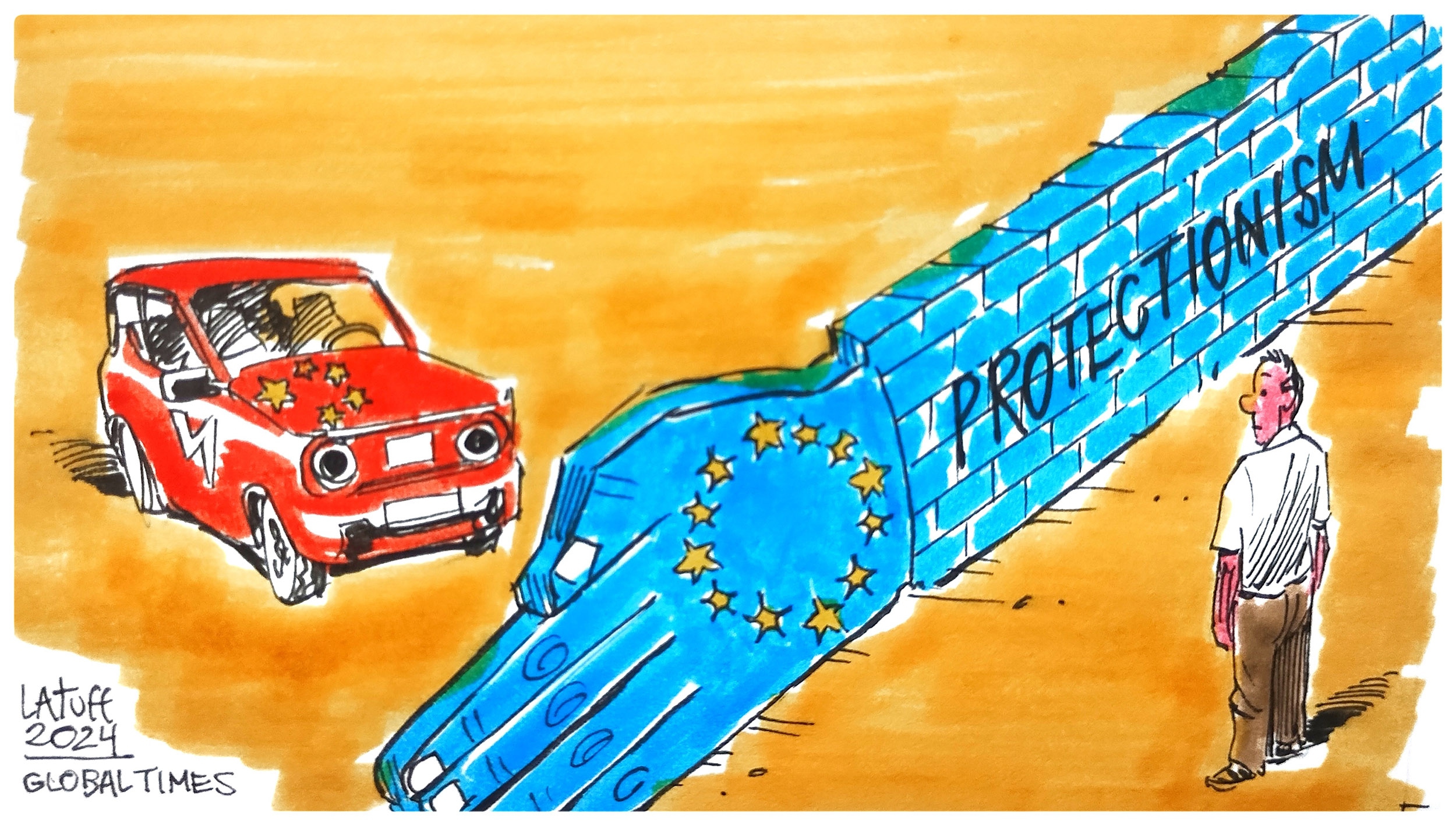
Cartoon: Carlos Latuff
Imposing high tariffs on Chinese battery electric vehicles (BEVs) could severely jeopardize the EU's climate objectives and its industrial competitiveness, the China Chamber of Commerce to the EU (CCCEU) stated on Friday. The chamber in its statement highlighted the potential negative impact on China-EU cooperation within the automotive sector and urged the two parties to seek a resolution through dialogue and consultations.
The statement followed China's Ministry of Commerce's announcement on Friday which said China has initiated dispute settlement proceedings against the EU's provisional anti-subsidy measures on Chinese EVs at the World Trade Organization (WTO).
The CCCEU said it welcomes the rounds of technical consultations held between China and the EU and reiterated the need for a collaborative, rather than protectionist, approach to prevent further escalation of the situation. They warned that high tariffs would elevate battery electric vehicle (BEV) prices, diminish consumer demand, and consequently slow the EU's progress toward climate neutrality.
"The EU's transition to vehicle electrification calls for full competition rather than protectionism," the CCCEU asserted, criticizing the EU for mistakenly attributing domestic industrial challenges to foreign competition. Such measures, they argue, would stifle effective competition and inhibit necessary industrial improvements.
Furthermore, labeling Chinese BEV companies as being "subsidized" may significantly increase the risk of their investment and operations in the EU to be investigated under the Foreign Subsidies Regulation, severely damaging the profound cooperation between Chinese and European EV sectors.
The CCCEU also shared findings from a survey, conducted with China Economic Information Service, which showed significant concern among Chinese investors regarding the EU's regulatory environment, with 82 percent of respondents reporting a significant decline of confidence in investing in Europe, showing substantial impacts on business confidence and collaboration prospects.
Highlighting the broader industry perspective, the CCCEU noted that several European automakers have also opposed the tariffs and advocated for further dialogue. They called for dialogue and consultations to reach a resolution that complies with WTO rules and satisfies both parties, aiming to stabilize trade and investment confidence and push both sides to jointly advance toward climate neutrality targets.
In a broader market context, Europe reportedly was the slowest region of growth for EV sales in the first half of 2024, with only a 1-percent increase compared to the previous year, with 1.5 million units sold, according to Rho Motion, a UK-based research institute focused on the EV market.
